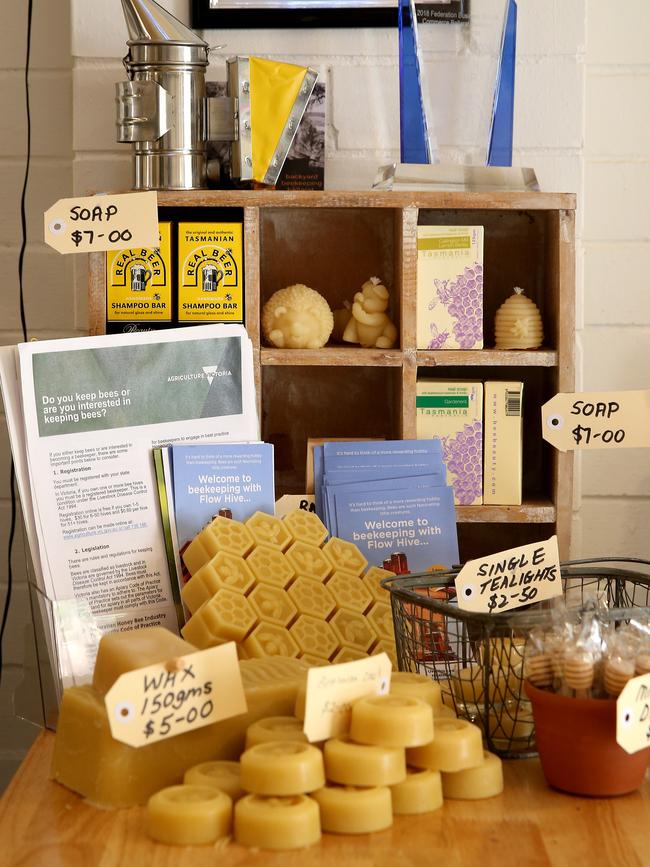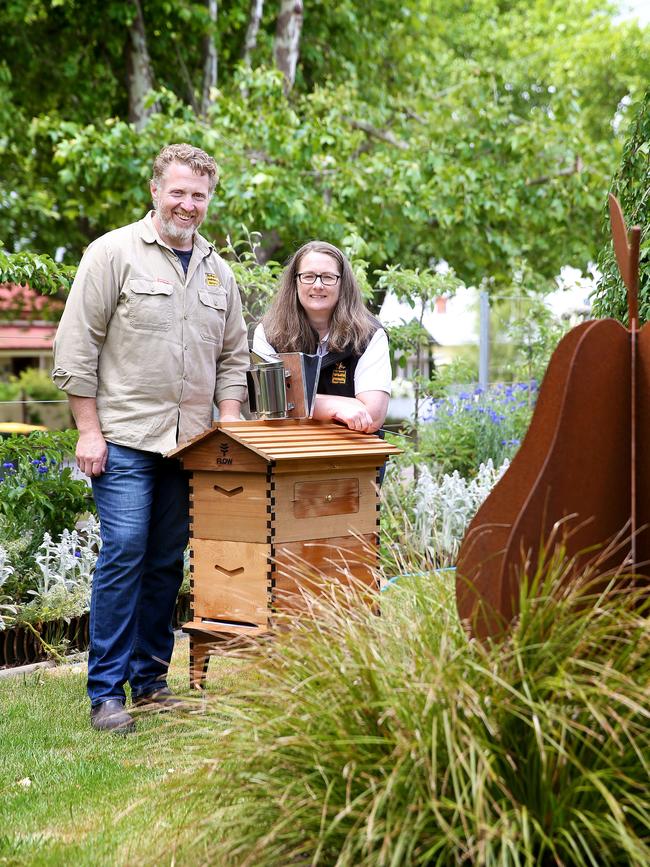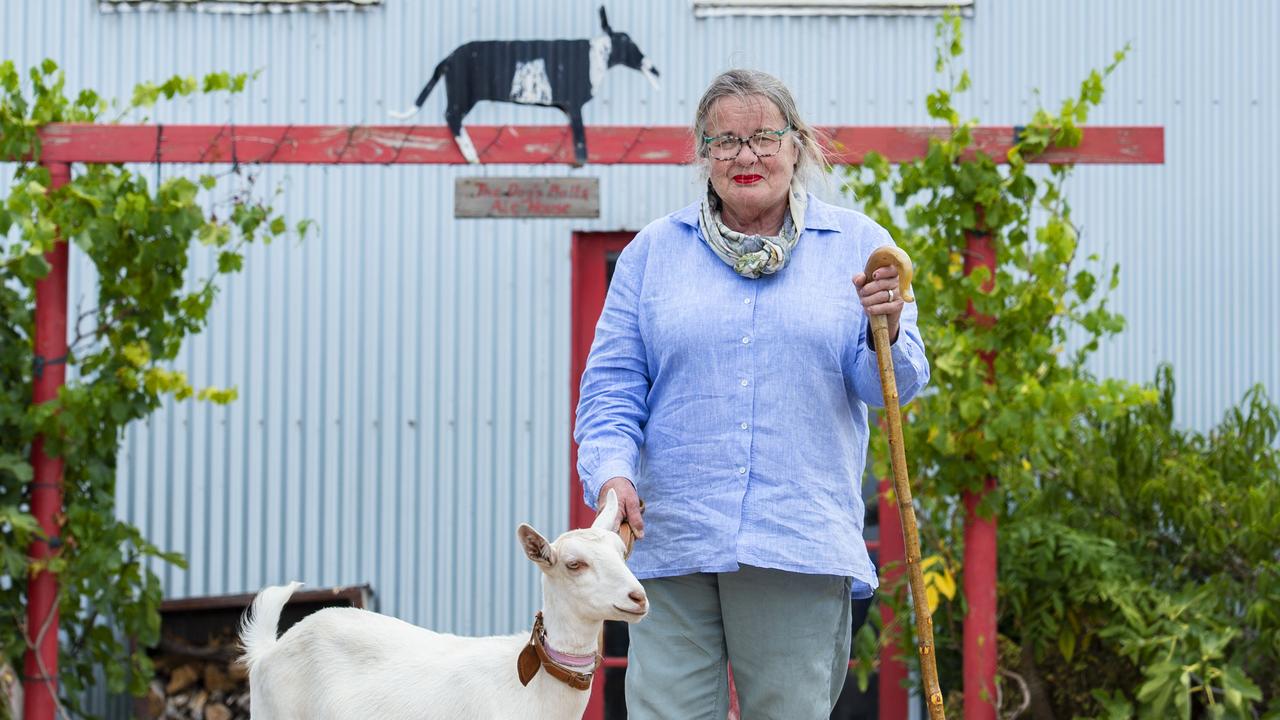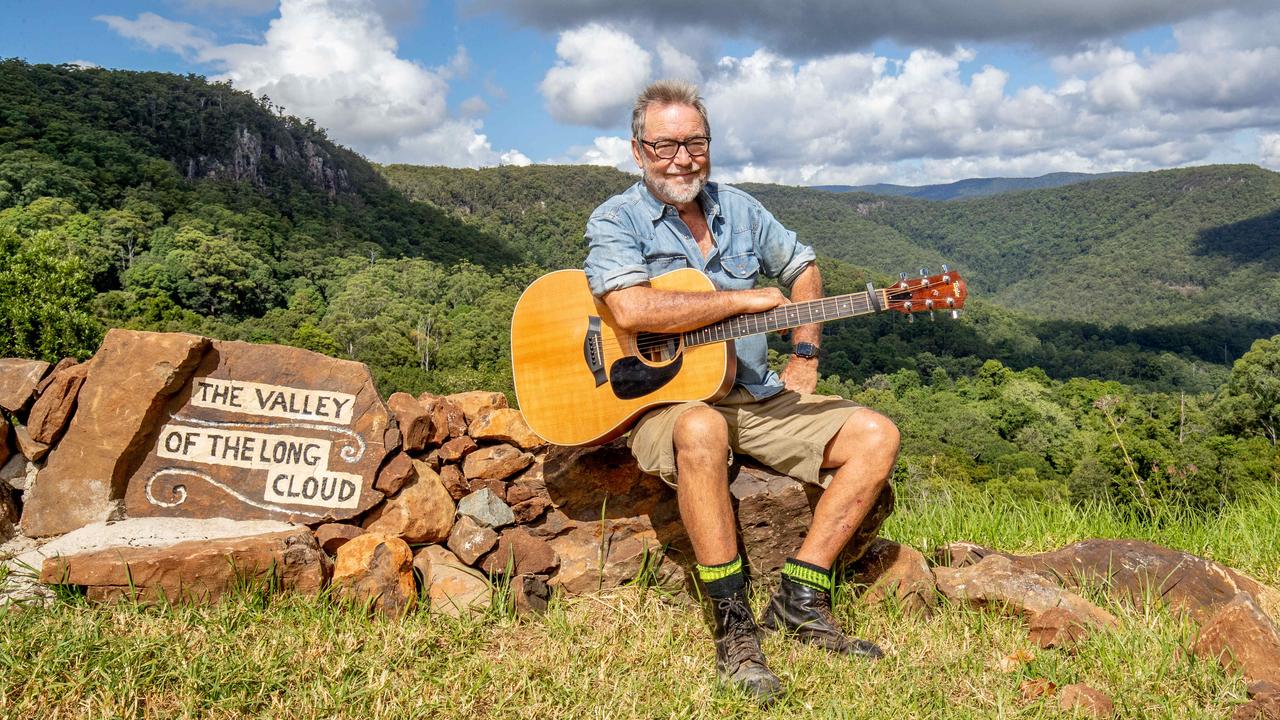Backyard Beekeeping Ballarat teaching responsible hive practices
WHILE there is plenty to enjoy about having a hive of your own, this husband and wife team make sure beekeepers also know their responsibilities, writes SARAH HUDSON.

WHEN it comes to honey, you could say Amanda Collins is the queen bee.
With all the buzz about bees lately — their importance to our food chain, potential demise through pesticides and diseases, and phony honey sold in supermarkets — Amanda provides an invaluable service.
Through Backyard Beekeeping Ballarat — a business she runs with her husband Scott Denno — Amanda bridges the worlds of commercial and backyard apiarists, promoting responsible hive ownership to the growing number of homeowners wanting a colony.
“About a quarter of people who come to us are well informed, but the rest want to save the environment or just want honey,” she says.
“First up we tell them they’re considered livestock and that immediately puts it into perspective. So we are upfront about what is required.
“We tell them if they want to save the planet by saving bees there are probably better ways to do it, such as leaving water out for bees, planting a bee-friendly garden, not using pesticides or herbicides and buying local honey.
“Having bees is not necessarily for everyone.”
Backyard Beekeeping Ballarat has about 50 hives, half of which they use for pollination services in berry, stone fruit, apple and pear industries through central Victoria and the Western District. They also produce honey, sold through Ballarat cafes and their own “urban farmgate shop” out of their retrofitted garage in the town centre.

The other 25 hives — each containing about 40,000 bees — they hire out for $275 per year to residents wanting to be mentored about beekeeping, for which they have a waiting list.
“We teach prospective beekeepers about managing bees responsibly. We can hand over management of a hive when they feel confident,” she says.
They also sell supplies, including personal protective gear, hive components, hardware such as smokers, queen excluders, as well as bees wax.
In addition, they run seasonal workshops covering eight topics, starting with biosecurity checks coming out of winter, and moving through to how to prevent swarming, how to extract honey and how to re-clean hives. They’ve also just started running an open hive experience, a two-hour “secret life of bees” for the curious or novice.
Both are qualified emergency beehive surveillance apiarists with the Victorian State Quarantine Response Team — with Scott even taking part in the containment of varroa mite at the Port of Melbourne last year.
Amanda helped initiate the inaugural Victorian Beekeeping Clubs Conference and has recently been awarded an Agriculture Victoria scholarship to study pollination at Marcus Oldham College.
“But compared to commercial apiarists, we’re just babies. With this industry, you never stop learning,” says Amanda, who is a member of the Victorian Rural Women’s Network and Australian Women in Agriculture.

Scott says the key to responsible backyard beekeeping is to firstly register hives through Agriculture Victoria. There are about 7600 registered beekeepers in Victoria, with fewer than 1000 having more than 50 hives (above 50 is considered commercial).
“We believe about 50 per cent of hobbyists aren’t registered,” says Scott.
“It’s important to register because if there’s a pest or disease outbreak, there’s quick dissemination of information, rather than just hearing it second-hand from a mate.”
He says hobby beekeepers should join a local club or the Victorian Apiarists Association, research and read documents such as the Apiary Code of Practice and Honeybee Biosecurity Code of Practice, find a mentor, understand how to avoid being a nuisance for your neighbours, and do courses.
“Although broadly speaking there are two major different philosophical approaches to beekeeping: natural, which is a more hands off approach, while traditional has a more evidence-based approach, which is what we practice.”
Scott adds that one or two hives in a backyard “is not a huge impost on time, as long as a hobbyist covers off on their requirements and manages the hives responsibly”.
Scott and Amanda became “accidental beekeepers” when they were given a hive by a friend in 2013, admitting they nearly killed that colony (not understanding the balance between taking honey and leaving pollen and nectar for baby bees).
They established Backyard Beekeeping Ballarat in 2015.
Amanda says there’s much about the insects to love and respect. (Did you know that young bees are furrier, while older bees have tatty wings, or that Queens can lay 2000 eggs a day?)
“Bees have a six-week lifespan and their entire lives are filled with helping and service the greater colony,” she says.
“You have to have a huge amount of respect for a little insect that is so industrious.”


